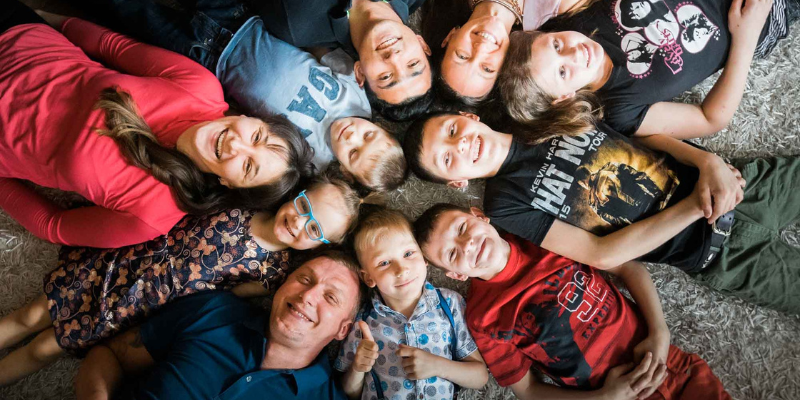Around the world, orphaned and vulnerable children are being cared for by individuals, community leaders, government workers, NGOs and many others who all desire the best for the children they serve. Yet, the challenges and demands that come along with this work can leave many feeling isolated and overwhelmed and, at times, reliant on experience and intuition to make decisions and develop programs.
Researchers often have data-informed insights and methodologies that can be used to strengthen care for vulnerable children. Front-line leaders often have essential knowledge of the local context and the great resourcefulness needed to customize and implement solutions effectively where they work.
Developing excellent care for orphaned and vulnerable children requires more than either side of this equation can offer. It requires an intricate blend of the best available research and a deep understanding of local contexts and realities on the ground.
Sustainable progress in child welfare depends on bringing the ideals of research to the realities faced in local contexts.
By bringing researchers and practitioners together, we can create a virtuous research-practice feedback cycle, in which practice is being informed by research and research is being informed by practice.
Practitioners learn from researchers about what works and leads to better outcomes and adapt the learning to fit their contexts. Researchers evaluate innovative practices already being used on the ground to support the development of data-informed practices that truly work in real-life settings.
The impact of this interconnected approach can be seen in four research-practice projects completed in 2022 when the CAFO Research Center offered small grants to connect research with practice in child welfare.
A story of successful partnership
As the researcher in one of four Researcher + NGO pairs, Dr. Sarah Neville evaluated a family strengthening program in Sierra Leone, led by Helping Children Worldwide. The program, drawn from other research-based programs, included a two-day workshop on relationship resilience and basic economic literacy for caregivers and their children, along with follow-up home visits reinforcing the lessons. The primary goal of the program was to prevent family separation.
The evaluation led by Dr. Neville examined the effectiveness of integrating the Family Strengthening Program curriculum into the follow-up home visits that take place after the two-day workshop. In this study, 100 child-caregiver pairs were selected to participate, with 50 receiving the integrated family strengthening curriculum in their follow-up visits and 50 receiving standard follow-up care without the integrated curriculum.
The results were striking.
Children who participated in the intervention said their parents engaged in more “talk, time, and touch” with them after the intervention, such as holding conversations about their children’s lives, spending dedicated time with them and showing physical affection. Children said they were more likely to apologize to their parents when they did something wrong after the intervention, and that their caregivers comforted them more often.
Caregivers who participated in the program mirrored what the children had to say, reporting that they comforted their children more and were more likely to apologize to them. They confirmed that their children were also more likely to apologize to them in times of conflict.
The evaluation indicated that the family strengthening curriculum fostered deeper attachments between children and caregivers. The simple act of open conversation, dedicated one-on-one time, and compassionate touch created safe spaces for healing and connection.
Partnering researchers with practitioners encourages everyone
The experience of partnering to bring evaluation and local practice together was an encouragement to both researcher and practitioner.
“It is amazing to be able to work directly with a researcher who is so passionate about the topic. If our practice does prove to be promising, we would have research to support the marketing we already do around the efficacy of this practice, and we would be able to share with other organizations not just the practice but proof of the impact of the practice,” said Laura Horvath, HCW Director of Programs and Global Engagement.
Dr. Sarah Neville reported, “I’m very excited because this may be the first quantitative evaluation of a family preservation program in LMIC (Low and Middle Income Country) that’s specifically meant to prevent children entering residential care. If the results are promising, HCW will be able to share the curriculum with other organizations so their clients can benefit from it as well. With promising results, HCW will be able to share their curriculum with other organizations so their clients can benefit from it as well.”
The experiences of Dr. Neville and Helping Children Worldwide are representative of many examples that illuminate what’s possible when we bridge the gap between global research and grassroots implementation. The findings not only provide Helping Children Worldwide with the assurance that their program is achieving the hoped-for results but also affirm an approach to family strengthening that can be shared with other organizations doing similar work.
This study highlights an important truth– it is possible to prioritize both data-informed research and local, innovative practice in the pursuit of excellent care.
Bridging research and customized solutions at the 2024 Research Symposium
Each year at Summit, the CAFO Research Center hosts a Research Symposium focused on connecting research and practice in the care of orphaned and vulnerable children.
The 2024 Research Symposium, Innovate Local: Bridging Research and Customized Solutions, will bring researchers and care leaders together to explore the process of uniting best practices and customized local solutions – similar to the way Dr. Neville and Helping Children Worldwide partnered to study promising practices.
We will delve into emerging research, explore local innovations and catalyze the development of customized, evidence-driven strategies to effectively serve children and families. All participants will leave equipped with practical tools and frameworks for developing their own homegrown, research-informed solutions.
Join us at the 2024 Research Symposium to be inspired, challenged and equipped to develop meaningful progress for orphaned and vulnerable children through global research and local innovation.

